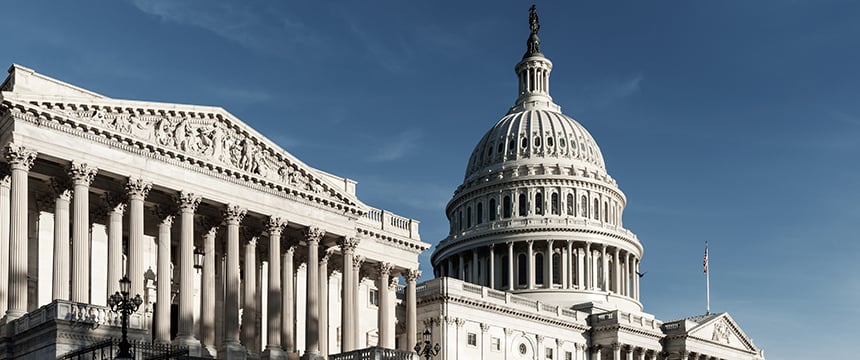
While Congress reached a last-minute deal for a continuing resolution on September 30, averting a government funding lapse, commonly known as a “shutdown,” it now appears that Congress may not reach another such deal by midnight on Friday, December 3, when the initial funding expires. As explained in our October 1, 2021 Client Alert, Looming Government Shutdown Mitigation in the Times of COVID-19: Contractors should take steps now to prepare!, if Congress cannot reach a new funding deal, Federal programs that run on annual appropriations will shut down until Congress reaches an agreement, unless the programs are excepted or exempt under the Anti-Deficiency Act. Even if the lapse only lasts a few days, government contractors will be impacted.
As we discussed in our prior Client Alert, the Anti-Deficiency Act excepts from lapse those actions taken to preserve the safety of human life and the protection of property. As such, the government may not incur obligations for ongoing, regular functions that do not imminently protect life and property. But there remains reason to believe that the Office of Management and Budget (“OMB”) may take a broader view of the life and property protection exception. The government’s response to the COVID-19 pandemic, including the broader procurement of goods and services to prevent the spread of COVID-19 and the issuance, updating, and implementation of requirements for contractors to specifically help prevent the spread of COVID-19, continues with OMB’s approval. Thus, contractors have credible arguments that the activities they are performing to prevent the spread of COVID-19 protect life and should continue even during a funding lapse.
The continued mutation of the SARS-CoV-2 virus into new variants, including the recently identified Omicron coronavirus variant, suggests that the government’s efforts to protect human life against the spread of COVID-19 will increase, not decrease, in the near term, leading to the availability of strong arguments for exception under the Anti-Deficiency Act.
So are you prepared if the government shuts down in two days? If you have not already done so, we recommend that contractors take the following steps now in order to begin crafting arguments that their contracts should be excepted:
- Identify which of the contractor’s federal contracts and subcontracts are excepted or exempt under the Anti-Deficiency Act, as well as those that could be due to the unique circumstances of the COVID 19 pandemic;
- Communicate with your contracting officers to ensure they understand the parameters of your work and the portions that protect life and property;
- Ensure you are prepared to keep detailed records of work performed under excepted or exempt contracts and their associated costs during a government shutdown;
- Identify what steps you can take to mitigate costs during the potential government shutdown; and
- Communicate with your subcontractors and employees, so that they are prepared for the possibility of a stop work order.
Foley lawyers have unique experience to help address the legal and business challenges created by a potential lapse in appropriations. Mike Walsh ([email protected]) served at the U.S. Department of Commerce during five funding lapses; David Ralston ([email protected]) has advised government contractors on all of their legal issues for decades; and Megan Chester* ([email protected]) served in the Procurement Law Branch of the Federal Emergency Management Agency during two funding lapses and the government’s initial response to the COVID-19 pandemic. Please feel free to contact any of us to discuss lapse planning for December.
* Admitted only in Minnesota. Practicing under the supervision of a member of the DC Bar.

